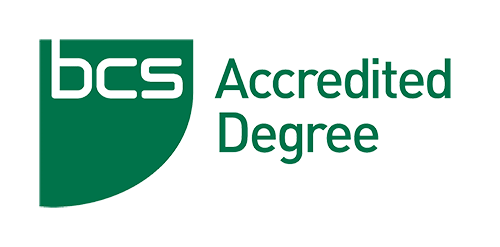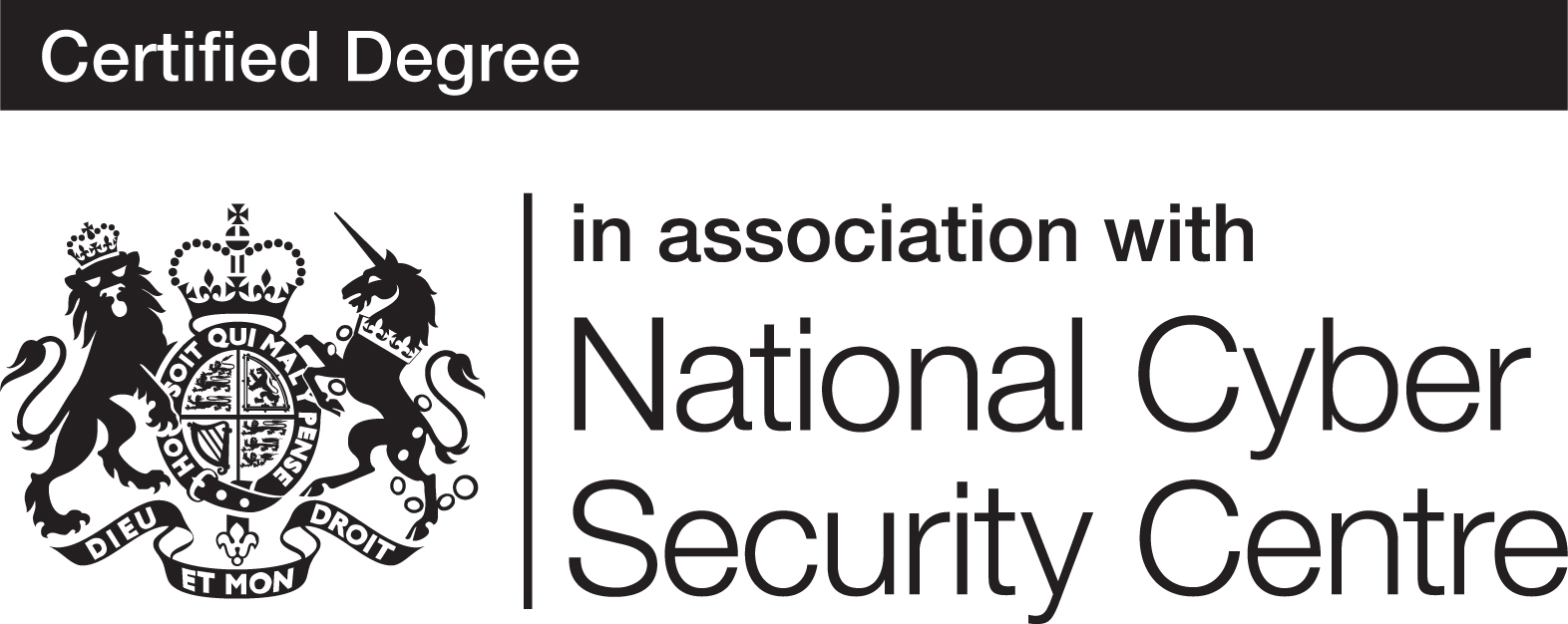Computer Forensics and Cyber Security, MSc
Our professionally accredited Master's in Computer Forensics and Cyber Security covers cybercrime, police and forensic methods, alongside computer software and hardware.
Our Computer Forensics and Cyber Security course allows students to familiarise themselves with the most recent technologies, scientific innovations and best practice in protecting digital infrastructures, from enterprise networks to Internet of Things environments. Students are also trained on modern tools and methodologies for conducting digital forensics investigations, spanning the whole range from the collection of evidence to analysis and acting as expert witnesses.
This course is suitable for both newcomers to computer security and computer forensics and practitioners who wish to further their skills. It covers practical skills for network security, penetration testing and digital forensics, as well as the theory and scientific basis that underpins everyday practice. It also ensures that students have a basic understanding of the legal and regulatory requirements and the standards pertaining to computer security.
Location
Duration
- 1 year full-time
- 2 years part-time
Start month
September; January
Home /international fees 2026/27
£11,800 /£19,450
What you should know about this course
What you will study
About the course team
Welcome to our Masters in Computer Forensics and Cyber Security, which is taught from within the School of Computing and Mathematical Sciences. This includes academics and practitioners with expertise in the most recent technologies, scientific innovations and best practice in cyber security and digital forensics. The majority of our teaching team holds a teaching qualification.
Come and meet us
We are offering virtual events so you can still experience how Greenwich could be the right university for you.
Next Open Days
Got a question?
To find out more about our Open Days and Campus Tours or if you need any assistance, please email opendays@gre.ac.uk.
Entry requirements
An undergraduate (honours) degree at 2:2, or above, in Computing, Computer Science, Mathematics, Physics, Engineering, Information Systems or Multimedia or a relevant numerate subject that includes software development experience.
Applicants without a degree that have substantial commercial/industrial experience including software development using modern programming languages and design may be considered.
For more information, use our contact form or call us on 020 8331 9000.
You can also read our admissions policy.
Further information about entry
We welcome applications from mature students.
Available to overseas students?
Yes
Can I use Prior Learning?
For entry: applicants with professional qualifications and/or four years of full-time work experience will be considered on an individual basis.
For exemption: If you hold qualifications or courses from another higher education institution, these may exempt you from courses of this degree.
How you will learn
Teaching
In a typical week, learning takes place through a combination of lectures, tutorials and practical work in the labs. You'll be able to discuss and develop your understanding of topics covered in lectures in smaller group sessions, and put your knowledge into practice in our specialist computer laboratories.
Teaching hours may fall between 9am and 9pm, depending on your elective courses and tutorials.
Class sizes
Lectures are usually attended by larger groups and seminars/tutorials by smaller groups. This can vary more widely for modules that are shared between degrees.
Independent learning
Outside of timetabled sessions, you'll need to dedicate time to self-study to complete coursework, and prepare for presentations and exams. Our Stockwell Street library and online resources will support your further reading and research.
You can also join a range of student societies, including our Computer and Technology Society, Gre Cyber Sec, Forensic Science Society, and Games Development Society.
Overall workload
Your overall workload consists of lectures, tutorials, labs, independent learning, and assessments. For full-time students, the workload should be roughly equivalent to a full-time job. For part-time students, this will reduce in proportion with the number of modules you are studying.
Assessment
On this course, students are assessed by coursework, examinations and a project. Some modules may also include practice assessments, presentations, demonstrations, and reports, which help you to monitor progress and make continual improvement.
Feedback summary
We aim to give feedback on assignments within 15 working days.
Dates and timetables
The academic year runs from September to the end of August, as the students are working on their project full-time during the summer months.
Full teaching timetables are not usually available until term has started. For any queries, please call 020 8331 9000.
Fees and funding
University is a great investment in your future. English-domiciled graduate annual salaries were £10,500 more than non-graduates in 2023 - and the UK Government projects that 88% of new jobs by 2035 will be at graduate level.
(Source: DfE Graduate labour market statistics: 2023/DfE Labour market and skills projections: 2020 to 2035).
| Cohort | Full time | Part time | Distance learning |
|---|---|---|---|
| Home | £11,800 | £1,967 per 30 credits | N/A |
| International | £19,450 | £3,242 per 30 credits | N/A |
Accommodation costs
Whether you choose to live in halls of residence or rent privately, we can help you find what you're looking for. University accommodation is available from £126.35 per person per week (bills included), depending on your location and preferences. If you require more space or facilities, these options are available at a slightly higher cost.
Scholarships and bursaries
We offer a wide range of financial help including scholarships and bursaries.
International Scholarship Award
International students who hold an offer to study at the University of Greenwich could receive a tuition fee discount worth up to £2,500 in their first year, for students from India, Sri Lanka, Nepal, Bangladesh, Pakistan, Nigeria or Ghana.
International Scholarship Award
Greenwich Progression Bursary
£3,000 bursary for home fee paying University of Greenwich final year undergraduate students and Alumni.
EU Bursary
Following the UK's departure from the European Union, we are supporting new EU students by offering a substantial fee-reduction for studying.
Financial support
We want your time at university to be enjoyable, rewarding, and free of unnecessary stress, so planning your finances before you come to university can help to reduce financial concerns. We can offer advice on living costs and budgeting, as well as on awards, allowances and loans.
If there are any field trips, students may need to pay their travel costs.
Careers and placements
What sort of careers do graduates pursue?
Graduates from this course are equipped for employment in industry, commerce or research with a proficiency in the key theoretical and practical areas in digital forensics and cyber security .
Do you provide employability services?
Our services are designed to help you achieve your potential and support your transition towards a rewarding graduate career.
The Employability and Careers Service provides support when you are preparing to apply for placements and graduate roles. It includes CV clinics, mock interviews and employability skills workshops.
Each School also has its own Employability Officer, who works closely with the industry and will provide specific opportunities relevant to your own course.
More about Careers.
Accommodation
Greenwich
Living in halls of residence is a great way to make new friends and get into the social side of university life. With four great locations, all minutes away from the campus and the centre of historic Greenwich , you will be at the heart of one of the most beautiful university settings in the UK.
Rooms start at £146.30/wk and include Wi-Fi, utility bills, access to our on-campus gym and 24-hour security - and just a 10-minute train journey to central London. Students based at our Greenwich campus can also choose to live the Student Village at Avery Hill, which is only a short ride on our free shuttle bus.
Support and advice
Academic skills and study support
We want you to make the most of your time with us. You can access study skills support through your tutor, lecturers, project supervisor, subject librarians, and our academic skills centre.
We provide additional support in Mathematics.
Support from the department
As a Computing and Mathematical Science School student, you can enter our Oracle mentoring scheme. This helps students liaise with industry for advice on careers, professional insight, guidance in looking for jobs, and developing employability and presentation skills.
Not quite what you were looking for?
We've got plenty of other courses for you to choose from. Browse our postgraduate courses or check our related courses below.....
Computer science at the University of Greenwich
Our Computer Science programmes are ideal for those keen on developing strong technical skills, advanced programming, and the science behind AI and algorithms.
Visit our computer science degrees page.
Computer science degrees
Studying computer science and computing at the University of Greenwich
Our computer science and computing degrees prepare you for a high-powered career in data science, software development and everything in-between. Our courses blend innovation with real-world application.
Visit our computer science and computing degrees page.
Computer science and computing subjects

Computer engineering degrees
These pioneering degrees combine technical engineering with an impressive depth of computer theory. You'll gain the specialist knowledge and skills needed to work in this cutting-edge industry.

Computer science degrees
Our Computer Science programmes are ideal for those keen on developing strong technical skills, advanced programming, and the science behind AI and algorithms.

Computing degrees
If you're passionate about applying technology in practical and business contexts, our Computing and Business Computing degrees are tailored for you. Blending technical skills with business acumen they will prepare you for a wide range of careers.
Mode of study
Select from the dropdown below.
| Course level | |
| UCAS code | |
| Duration | |
| Location |








